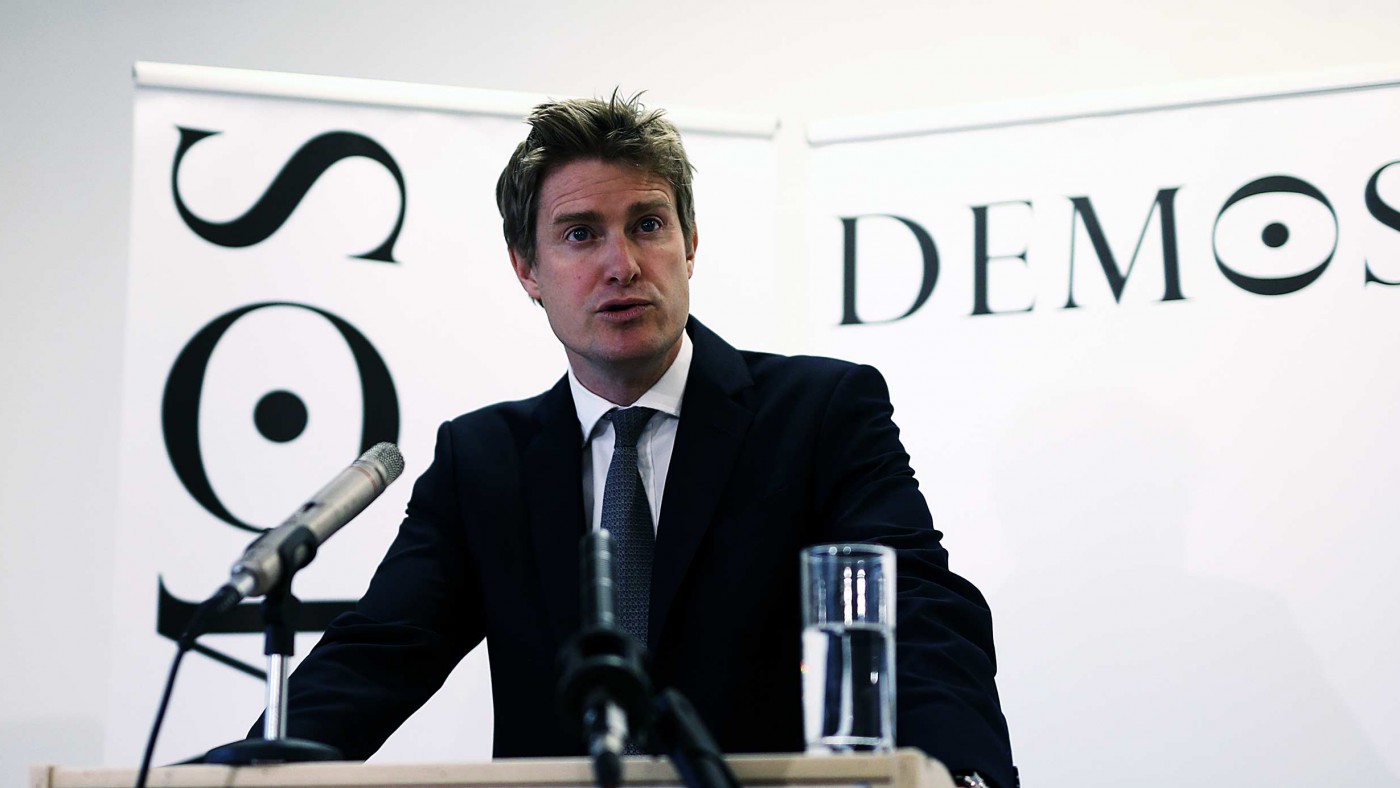Tristram Hunt, historian and Labour frontbencher, is a decent and clever man. If his party makes it back to government at some point, he will surely be a useful member of any cabinet. But he is not a leader, as he admitted in a speech to the Demos think tank today, in which he ruled himself out of the race to replace the defeated Ed Miliband.
What was most striking about the speech – in which he eventually backed the impressive Liz Kendall – was not the content though. Much more revealing was the reaction of watching journalists. The sceptical griping that in the old days used to be confined to the hacks in the room, whispering “is there much more of this?” and “it’s almost lunchtime”, now spills over on Twitter. They were taking the mickey out of Hunt and his learned assessment of Labour’s travails on social media, although he should not take it too personally. It was merely the latest sign that Labour, after its heavy defeat, is in that most dangerous of positions for a political party. It teeters on the edge of joke status.
Something similar happened to the Conservative party after New Labour’s landslide in 1997, when despite the efforts of William Hague – the funniest speaker I ever saw – it was clear to everyone that there was no point taking the Tories too seriously because they were out for a decade or more.
When it becomes clear that a party is stuffed, the license granted by journalists and other engaged observers is suddenly revoked. Speeches are not taken seriously and silly errors are magnified. This is much, much worse than the criticism suffered by Ed Miliband during his leadership. Then it was widely believed that the collapse of the Lib Dems and the transfer of votes to Labour still gave him a chance of winning or coming close, so even though he was mocked, he was not written off entirely.
Now, it is much worse for whoever follows Miliband, with the party in a hole that is even deeper than it looks. Having suffered an extinction event in Scotland, Labour is under assault in two ways. In northern England and beyond, many of those who feel left behind by globalisation and changing patterns of work (forgotten Britain) have gone to UKIP or vote Labour out of habit and without much enthusiasm. In the parts of the country in which self-employment is surging and business formation is booming, Labour risks looking as though it is from a different century. What is the person running a building firm, or a cleaning business, or getting a tech start-up going with a handful of colleagues working flat out, to make of the witterings of Len McCluskey and trade unionists planning a general strike against austerity? Not much, I suspect.
With Labour requiring a complete rethink, it is beyond bizarre that so many of the party’s MPs should already be lining up behind the assorted candidates for the leadership, as though it is business as usual. Why not take a few months and listen to what the contenders have to say? The next election is not for five years, or four years if the Tories kill the fixed term parliament act. There is time aplenty for proper thinking about how Labour might remake itself to accord with new economic realities and an entrepreneurial revolution that is changing the face of much of the country.
A party that was serious about reviving itself would also be rethinking how it chooses its leaders, because the old models are bust and politics needs to change. Not change in a let’s make speeches with the word change in every paragraph fashion. Not change as in let’s have a conference on a Saturday morning in central London and talk to each other about change. Something much more radical is required. Even the most recent reforms of Labour’s electoral college do not go far enough. Why not seek a proper public vote? With public hustings and a televised run-off, X Factor style, Labour might find that someone such as Liz Kendall connects with voters and captures their attention as the SNP’s Nicola Sturgeon and Scottish Tory leader Ruth Davidson have done in Scotland.
But Labour is too small c conservative an organisation to risk such a change. Which is why Labour people tell me that Kendall is highly unlikely to win and it is between Andy Burnham and Yvette Cooper.


